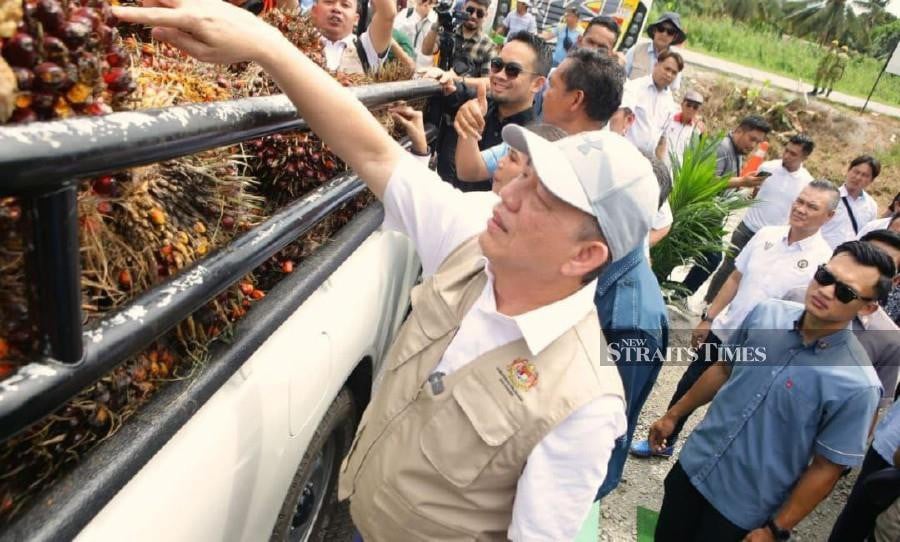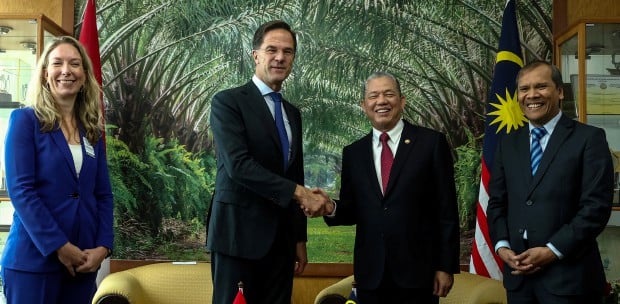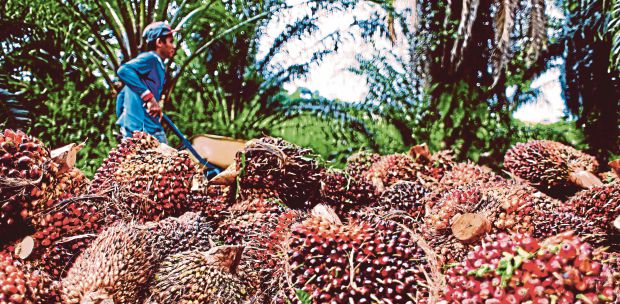KUALA LUMPUR: Malaysia recorded agricommodity export value of RM117 billion up to September 30 this year, said the Plantation and Commodities Ministry (KPK).
Its Minister, Datuk Seri Fadillah Yusof, said the encouraging performance was achieved even though the country faced various challenges in the global arena due to geopolitical conflicts and uncertain economic developments.
He said this in an interview on Radio Televisyen Malaysia's (RTM 1) 'Selamat Pagi Malaysia Madani Government One Year' anniversary programme today.
MALAYSIA AIMS TO EXPAND AGRICOMMODITY MARKET
Fadillah said the government targets to expand the agricommodity sector to new markets globally by enhancing cooperation and diplomatic relations.
"Among them, Malaysia's mission to Kenya, as export to this country has increased. We view Kenya as a new market for us to expand the sector," he said.
Besides that, Fadillah said Malaysia has also received a commitment from China to increase imports of agricommodity products of up to 3.4 million tonnes.
China is Malaysia's second-biggest importer of agricommodity products after the European Union (EU), he said.
CHALLENGES FACED IN EXPANDING TO NEW MARKETS
The agricommodity sector faces several challenges in its mission to expand its markets such as the introduction of new rules which could restrict and curb exports, he said.
"This specifically relates to the EU Deforestation Regulation (EUDR). This is why, one of our missions with Indonesia to Belgium, under the palm oil producing countries, was to meet with the leaders of the EU.
"We received agreement to create an Ad Hoc Joint Task Force composed of representatives from the EU, Indonesia and Malaysia, whereby the first meeting was held in Jakarta in August this year," he said.
Malaysia is expected to chair the second meeting of the task force in mid-January next year after it was postponed in December.
The meeting aims to find solutions on how the EUDR must consider the views of producing countries and discuss the effects of the regulation on the producing countries, particularly smallholders, and the guidelines of the EUDR implementation.
"One of our requests to them (EU) is to recognise or acknowledge that we (producing countries) already have the process to certify all plantations, estates, farms, and processing plants under the Malaysian Sustainable Palm Oil (MSPO)," he said.
CURRENT ACHIEVEMENTS OF CERTIFICATION FOR PALM, WOOD SECTORS
For palm, the MSPO targets 98 per cent of planted areas in 2023. As of September 2023, the MSPO-certified land areas were at 95 per cent.
"I hope Malaysia will achieve the overall MSPO target as we have made it mandatory for palm sector players to get MSPO, including smallholders, manufacturers and plantations," he said.
For the wood sector, Fadillah said Malaysia has obtained six Malaysian Timber Certification Scheme to date.
"This achievement is actually important as the global market needs commitment in terms of compliance to environmental sustainability.
"Hence, if we want to expand our international market, we must meet all the requirements or regulations with regards to sustainability set by the United Nations, the World Trade Centre (WTO) or any countries that issue such rules," he said.
OPPORTUNITIES FOR YOUTH TO VENTURE INTO AGRICOMMODITY SECTOR
Fadillah said the agricommodity sector provides job opportunities not only for youths but also business opportunities.
"How do they translate their knowledge and skills in the plantation sector? For instance, the plantation sector now uses drones, automation and mechanisation, this is the encouragement for youth to get involved and expand their knowledge.
"In fact, their involvement in this sector is not limited as workers but more important for them to expand their knowledge such as the supply of equipment needed in the plantation sector," he said.
The youths can also venture into cocoa-based products which have seen an increase in demand from local and global markets, he added.
"Another example is pepper, which we usually regard solely as a spice. But now there is pepper tea, pepper coffee, and also pepper perfumes.
"This means Malaysians are very creative. When they are given the chance, they can create downstream products to meet various market demands including food, pharmaceutical and nutraceutical, and beauty sectors," he added. --BERNAMA





